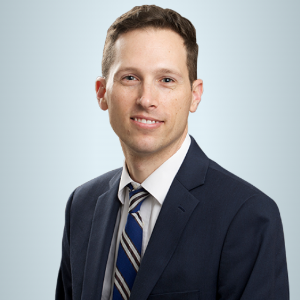View This Center’s Verified License
Learn More
Verified
Verified
Verified
Learn More
Highlights
Insurance Accepted
Joint Commission Accredited
Holistic Approach
Trauma-Informed Care
About Newport Institute Virginia
Newport Institute offers gender-specific treatment for young adults ages 18 to 35 who struggle with mental health issues. Each resident’s treatment plan includes clinical, experiential, vocational, and educational aspects for long-lasting effectiveness. The Newport Institute provides individual and group therapy, cognitive behavioral therapy (CBT), nutrition education, body image group, and attachment-based family therapy (ABFT). Founder Jamison Monroe created Newport Institute to help young adults have fulfilling, happy lives as they are the generation with the most dramatic rise in mental health issues in the United States.
Newport Institute has young adult male and female programs located in Leesburg, Virginia, with residential homes for women and men. They incorporate experiential practices into their patients' schedules. These include yoga, equine-assisted therapy, cooking classes, martial arts, and many more. Newport Institute Virginia strives to provide a well-rounded program and has life skills programs, career counseling and spiritual programs.
Young adults spend 30 hours in clinical and experiential care. Their academic pursuits take up another 20 hours, keeping patients comfortably busy as they work through treatment. Newport Institute uses assessments and personalized care to get to the “why” behind behavioral issues, treating much more than just the symptoms. Their proven success comes largely from compassionate staff, who aim to heal young adults in mind, body, and spirit.
Newport Institute’s life skills and academic programs prepare young adults for their new futures. Vocational assistance helps older patients as they transition out of schooling and into work, improving their executive skills and motivation. For the college-bound, Newport Institute helps patients keep on track with school and keep their future goals a priority.
Read More
Insurance Accepted
Provider's Policy:We work collaboratively with most major healthcare payers to optimize the benefit coverage for families in need. Verify your insurance eligibility by completing our insurance verification form, which kick-starts our health insurance verification process and takes only a few minutes.
Newport Institute carefully blends therapeutic care with experiential treatment, providing young adults an adventurous and healing experience. A combination of each addresses the needs of young adults, inspiring change, growth, and hope in the future. Outdoor outings take clients out into nature for a grounding and therapeutic experience.

Young adults beginning college, work, and their adult lives receive the support and skill-building they need from Newport Institute. Gentle support and guidance gives clients greater confidence, heightening executive functioning, independence, and their academic futures in college and beyond. Newport’s Life Skills program aims to inspire confidence and give the skills clients need for a successful and comfortable future.

Understanding the prevalence of trauma and mental health conditions in young adults, Newport Institute treats each patient as a whole–addressing trauma, post traumatic stress (PTSD), and mental health conditions like depression and anxiety. With co-occurring disorders treated, patients and their families begin healing from eating disorders, and other conditions.

Newport Institute prioritizes having a peaceful place to recover. Their gender-specific homes in Virginia meet this need for young adults, allowing them to separate from the outside world during treatment. Their Northern Virginia locations are just 25 minutes away from Washington DC and surrounded by natural attractions and quiet nature.


Young Adults
Emerging adults ages 18-25 receive treatment catered to the unique challenges of early adulthood, like college, risky behaviors, and vocational struggles.
LGBTQ+
Addiction and mental illnesses in the LGBTQ+ community must be treated with an affirming, safe, and relevant approach, which many centers provide.

Anxiety
Anxiety is a common mental health condition that can include excessive worry, panic attacks, physical tension, and increased blood pressure.
Learn More
Bipolar
This mental health condition is characterized by extreme mood swings between depression, mania, and remission.
Learn More
Codependency
Codependency is a pattern of emotional dependence and controlling behavior. It's most common among people with addicted loved ones.
Depression
Symptoms of depression may include fatigue, a sense of numbness, and loss of interest in activities. This condition can range from mild to severe.
Learn More
Young Adults
Emerging adults ages 18-25 receive treatment catered to the unique challenges of early adulthood, like college, risky behaviors, and vocational struggles.
Learn More
Post Traumatic Stress Disorder
PTSD is a long-term mental health issue caused by a disturbing event or events. Symptoms include anxiety, dissociation, flashbacks, and intrusive thoughts.
Learn More
Stress
Stress is a natural reaction to challenges, and it can even help you adapt. However, chronic stress can cause physical and mental health issues.
Learn More
Trauma
Some traumatic events are so disturbing that they cause long-term mental health problems. Those ongoing issues can also be referred to as "trauma."
Learn More
Licensed Primary Mental Health
Some primary care providers offer mental health diagnosis and treatment. This can prevent patients from developing more serious conditions.
Residential
In a residential rehab program, patients live onsite, with access to daily treatment and 24-hour care. An average stay is 30-90 days.
Learn More
Experiential
Expressive tools and therapies help patients process past situations, learn more about themselves, and find healing through action.
Learn More
Holistic
A non-medicinal, wellness-focused approach that aims to align the mind, body, and spirit for deep and lasting healing.
Learn More
Individual Treatment
Individual care meets the needs of each patient, using personalized treatment to provide them the most relevant care and greatest chance of success.
Learn More
Twelve Step
Incorporating spirituality, community, and responsibility, 12-Step philosophies prioritize the guidance of a Higher Power and a continuation of 12-Step practices.
Learn More
Gender-Specific
Separate treatment for men or women can create strong peer connections and remove barriers related to trauma, shame, and gender-specific nuances.
Learn More
1-on-1 Counseling
Patient and therapist meet 1-on-1 to work through difficult emotions and behavioral challenges in a personal, private setting.
Learn More
Trauma-Specific Therapy
This form of talk therapy addresses any childhood trauma at the root of a patient's current diagnosis.
Online Therapy
Patients can connect with a therapist via videochat, messaging, email, or phone. Remote therapy makes treatment more accessible.
Learn More
Mindfulness Therapy
This ancient practice can be mental, emotional, and even spiritual. In meditation, you focus your attention on the present moment without judgement.
Learn More
Art Therapy
Visual art invites patients to examine the emotions within their work, focusing on the process of creativity and its gentle therapeutic power.
Learn More
Equine Therapy
Guided interactions with trained horses, their handler, and a therapist can help patients improve their self-esteem, trust, empathy, and social skills.
Learn More
Experiential Therapy
With this approach, patients heal by doing. Therapists help patients process difficult emotions to speak, using guided activities like art or dance.
Learn More
Eye Movement Therapy (EMDR)
Lateral, guided eye movements help reduce the emotional reactions of retelling and reprocessing trauma, allowing intense feelings to dissipate.
Learn More
Family Therapy
Family therapy addresses group dynamics within a family system, with a focus on improving communication and interrupting unhealthy relationship patterns.
Learn More
Horticultural Therapy
Gardening can be both meditative and inspiring. This therapy encourages social, emotional, and physical recovery.
Life Skills
Teaching life skills like cooking, cleaning, clear communication, and even basic math provides a strong foundation for continued recovery.
Music Therapy
Singing, performing, and even listening to music can be therapeutic. Music therapy sessions are facilitated by certified counselors.
Learn More
Psychoeducation
This method combines treatment with education, teaching patients about different paths toward recovery. This empowers them to make more effective decisions.
Recreation Therapy
In recreation therapy, recovery can be joyful. Patients practice social skills and work through emotional triggers by engaging in fun activities.
Learn More
Spiritual Care
Tending to spiritual health helps treatment become more effective, allowing patients to better cope with their emotions and rebuild their spiritual wellbeing.
Learn More
Twelve Step Facilitation
12-Step groups offer a framework for addiction recovery. Members commit to a higher power, recognize their issues, and support each other in the healing process.
Learn More
Acceptance and Commitment Therapy (ACT)
This cognitive behavioral therapy teaches patients to accept challenging feelings and make the appropriate changes to reach personal goals.
Learn More
Group Therapy
Two or more people meet with a therapist together. Patients get valuable peer support, strengthen interpersonal skills, and improve self-awareness.
Yoga
Yoga is both a physical and spiritual practice. It includes a flow of movement, breathing techniques, and meditation.
Learn More
Personality Disorders
Personality disorders destabilize the way a person thinks, feels, and behaves. If untreated, they can undermine relationships and lead to severe distress.
Anxiety
Anxiety is a common mental health condition that can include excessive worry, panic attacks, physical tension, and increased blood pressure.
Learn More
Bipolar
This mental health condition is characterized by extreme mood swings between depression, mania, and remission.
Learn More
Codependency
Codependency is a pattern of emotional dependence and controlling behavior. It's most common among people with addicted loved ones.
Depression
Symptoms of depression may include fatigue, a sense of numbness, and loss of interest in activities. This condition can range from mild to severe.
Learn More
Eating Disorders
An eating disorder is a long-term pattern of unhealthy behavior relating to food. Most people with eating disorders have a distorted self-image.
Learn More
Obsessive Compulsive Disorder (OCD)
OCD is characterized by intrusive and distressing thoughts that drive repetitive behaviors. This pattern disrupts daily life and relationships.
Post Traumatic Stress Disorder
PTSD is a long-term mental health issue caused by a disturbing event or events. Symptoms include anxiety, dissociation, flashbacks, and intrusive thoughts.
Learn More
Self-Harm
The act of intentionally harming oneself, also called self-injury, is associated with mental health issues like depression.
Learn More
Stress
Stress is a natural reaction to challenges, and it can even help you adapt. However, chronic stress can cause physical and mental health issues.
Learn More
Suicidality
With suicidality, a person fantasizes about suicide, or makes a plan to carry it out. This is a serious mental health symptom.
Learn More
Trauma
Some traumatic events are so disturbing that they cause long-term mental health problems. Those ongoing issues can also be referred to as "trauma."
Learn More
Gender-specific groups
Patients in gender-specific groups gain the opportunity to discuss challenges unique to their gender in a comfortable, safe setting conducive to healing.
Young Adults Program
Programs for young adults bring teens 18+ together to discuss age-specific challenges, vocational and educational progress, and successes in treatment.
Learn More
Yoga
Yoga is both a physical and spiritual practice. It includes a flow of movement, breathing techniques, and meditation.
Learn More

Adam Furtado
Clinical Director of Admissions
LMFT

Dr. Barbara Nosal
Chief Clinical Officer
PhD, LMFT, LADC

Dr. Michel Mennesson
Psychiatrist
MD

Dr. Jennifer Dragonette
Clinical Services Instructor
PsyD
View More Team Members
Newport gave me a safe and supportive environment to heal and grow. I learned how to deal with life in a healthy, positive manner and gained a sense of self-worth that I had never felt before. I learned that I am more than my mental health. That I am strong, worthy and loved.
Shannon B.
We love hearing about your treatment experience
Help individuals and families seeking treatment by sharing your first-hand experience with this treatment provider. Review Guidelines.
